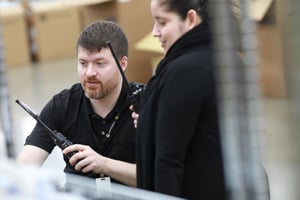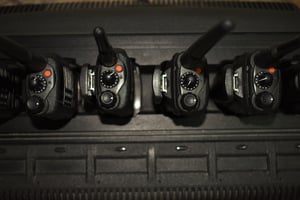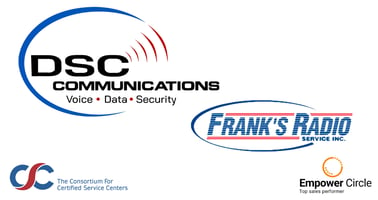When it comes to wireless communication, two terms you’ll often come across are UHF (Ultra High...
What is an FCC License?
The Federal Communications Commission (FCC) is the regulatory body that governs all forms of electronic communications in the U.S. — including TV, radio, satellite, and wireless devices like two-way radios.
The FCC ensures that all communication systems operate efficiently, legally, and without interfering with each other — which is where licensing comes into play.
What Is an FCC License – And Why It Matters for Your Organization’s Two-Way Radio Use
Two-way radios are a critical communication tool for a wide range of industries — from public safety, construction, and manufacturing to event management, hospitality, education, and more.
But whether you're using radios daily on job sites or occasionally for events, FCC licensing is a key factor you can’t afford to overlook.
Here’s what you need to know about FCC licenses, why they exist, and how they affect your organization’s radio communications.
What Is an FCC License for Two-Way Radios?
An FCC license grants your organization legal access to specific radio frequencies. These frequencies are assigned to ensure your communications stay clear, private, and interference-free.
Radios that operate on business-band UHF or VHF frequencies (common in most professional-grade radios) almost always require an FCC license.
Do You Need an FCC License?
It depends on what type of radios you’re using and how you’re using them:
License-Free Radios (FRS & GMRS)
-
Great for light-duty or recreational use
-
Limited range and features
-
No license required for FRS radios (but GMRS radios still require a license, even for individuals)
Licensed Business Radios (VHF/UHF)
-
Designed for higher performance and durability
-
Used in commercial, industrial, and event settings
-
FCC license is required to operate legally
If you're purchasing radios for ongoing use or managing your own communication infrastructure, you’ll need to secure your own license.
If you rent radios from DSC, we handle the licensing for you. You won’t need to apply for your own license unless you’re purchasing radios for long-term use or operating your own communication system.
Why Does Licensing Matter?
Using unlicensed radios — or operating on unlicensed frequencies — can lead to:
-
FCC fines and legal violations
-
Cross-channel interference with other users or industries
-
Dropped or unreliable communication when you need it most
-
Compromised privacy and security
Licensing isn’t just a formality — it’s about protecting your team’s ability to communicate effectively and legally.
How to Get Licensed
If your organization needs a license, the process involves:
-
Applying with the FCC (can be done online or through a licensed frequency coordinator such as DSC)
-
Paying a fee (licenses typically last 10 years)
-
Assigning frequencies based on your location and use case
Need help? DSC Communications can assist with the complete process.
Best Practice: Work With a Licensed Provider
Whether you're renting radios for a weekend event or setting up a long-term system, working with DSC, an FCC-compliant provider ensures:
-
✔️ Legal operation
-
✔️ Secure and interference-free communication
-
✔️ Peace of mind for your team and leadership
📞 Still Have Questions?
DSC is here to help. FCC licensing can seem technical — but you don’t have to figure it out alone. If you’re unsure whether your radios require a license, or you want to simplify your communication setup, reach out to a trusted provider for guidance.
Clear, legal communication starts with the right support.




